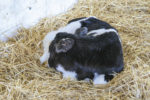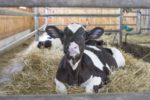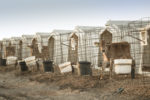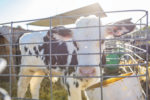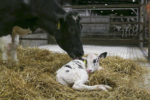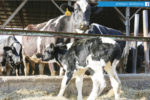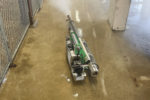Calves & Heifers
Seven steps to take if you suspect your herd might be infected with S. Dublin.
Read More
Completing a calf hygiene audit
With calf mortality rates at 6% to 8% and morbidity rates at 30%, the industry is on the hunt for ways to improve these numbers. Calf hygiene audits and ATP meters are two effective ways to accomplish this.
Read More
Obstacles to successful calf raising
As more operations refine their calf programs, the negative impact protocol drift has on calf welfare, future performance and business profitability is becoming increasingly apparent.
Read More
The short-term and long-term cost of scours
Scours treatments alone can cost a dairy $8-$27 per sick calf, not including long-term consequences, which can run farms significantly more. This makes it essential to minimize scours prevalence on-farm.
Read More
Antimicrobial resistance and antibiotic stewardship in the young calf
Antibiotic resistance is a serious concern everywhere on the dairy. However, calves are one area where good antibiotic stewardship can be especially crucial due to close human contact and the potential for calves to become reservoirs for resistant bacteria.
Read More
The first 60 days sets the course for later lactation
Calfhood BRD makes heifers more likely to leave the herd prior to first calving, and those that stay produce 267 pounds less milk in their first lactation. Cleanliness, nutrition, vaccinations and colostrum are all key to preventing this disease.
Read More
Is your refrigerator doing its job in keeping colostrum clean?
While IgG concentration is important, cleanliness is an essential component of quality colostrum and one that is directly tied to colostrum management. To minimize bacteria growth, farms should ensure proper colostrum storage.
Read More
Don’t lose your future genetics to calf scours
Scours is the primary cause of morbidity and mortality in preweaned dairy calves. This can have major ramifications down the road, making it imperative that calves receive proper care from day one.
Read More
Mycoplasma bovis: Answers to common questions and tips for treating it
Mycoplasma bovis can be a highly detrimental disease affecting a large number of calves, especially when commingled. Treating calves with chlorine dioxide can be highly effective.
Read More
